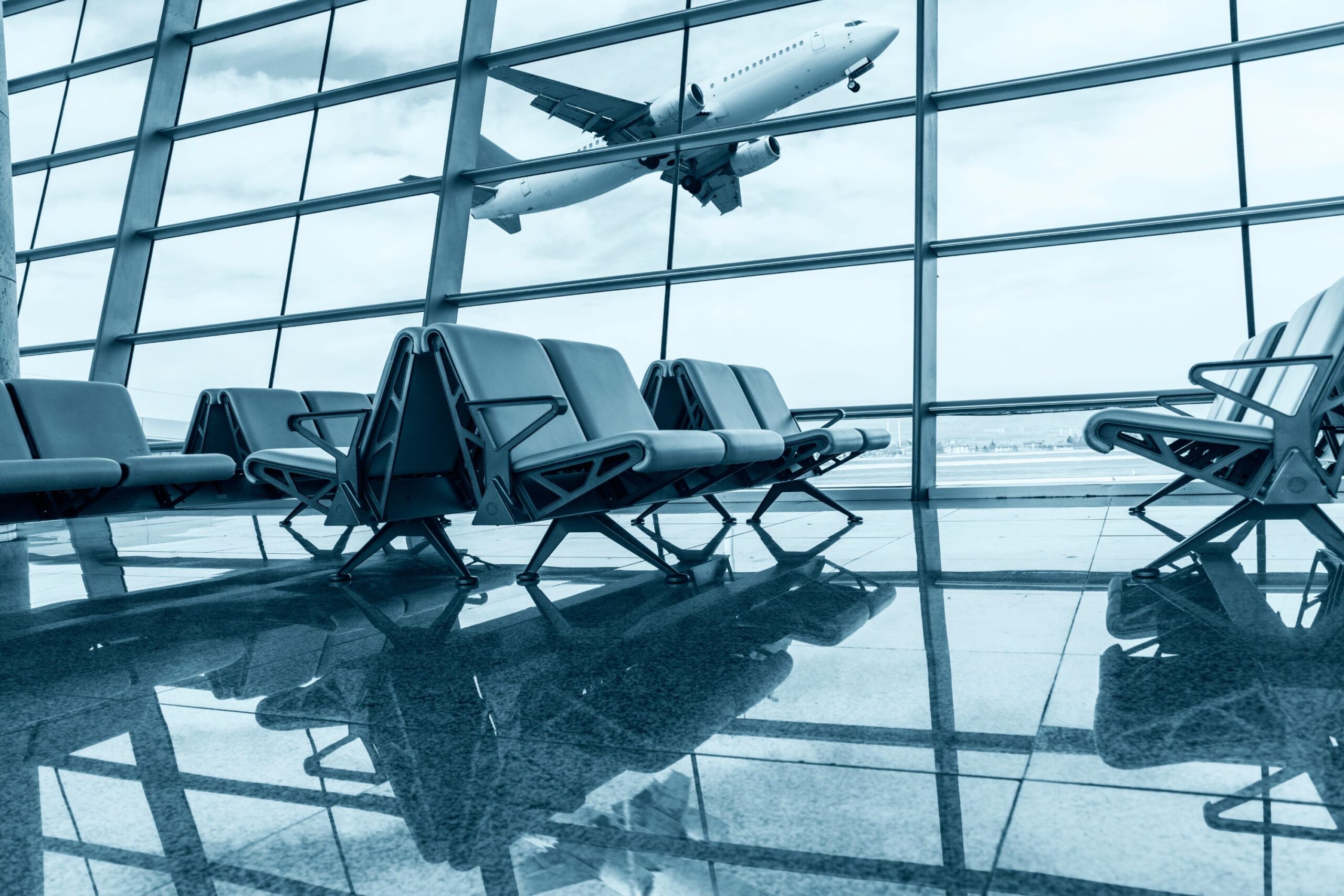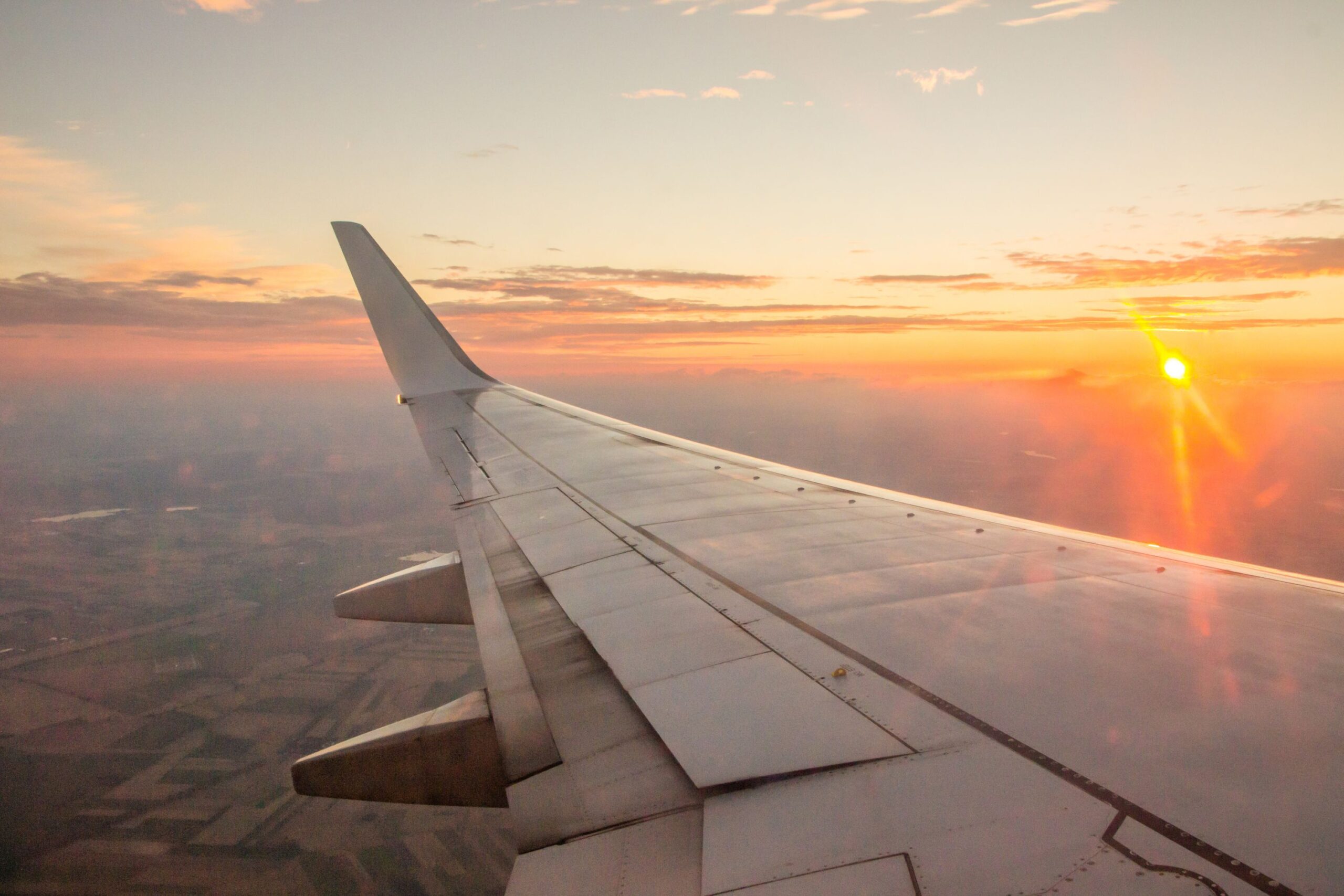When you book a flight, you don’t expect to cancel it. But life happens. Perhaps your plans change, something unexpected arises, or you can no longer travel. So, the big question is: can you get a refund for your flight ticket if you need to cancel it?
The short answer is—sometimes yes, sometimes no. The full answer depends on the type of ticket you bought, the airline’s policies, and when you cancel. Let’s review what matters and how to ensure you don’t lose your money when things don’t go as planned.
Understanding Refundable vs Non-Refundable Flight Tickets
If you’re wondering how to obtain a refund for your flight ticket, the first thing to check is the fare type. Not all tickets are created equal.
Refundable tickets usually cost more upfront, but they give you flexibility. You can cancel your booking and get most (or sometimes all) of your money back. Some airlines might deduct a small fee, but you’ll still receive a refund to your original form of payment.
Non-refundable tickets, on the other hand, are cheaper—but they come with restrictions. Cancelling usually won’t get your money back. Instead, you might receive a travel credit or voucher for a future flight. But not always.
If you’re the kind of traveler who likes to plan ahead but still wants the option to change things later, paying a bit more for a refundable ticket might save you trouble down the road.
Airline Cancellation Policies Matter More Than You Think
Every airline has its own rules. That’s why you should always read the cancellation policy before confirming your booking. It’s easy to overlook, but knowing the rules in advance gives you an advantage.
For example, many U.S. airlines follow the 24-hour cancellation rule. If you book a flight at least seven days before departure, you typically have 24 hours to cancel and receive a full refund, with no questions asked.
Outside of that window, things vary. Some budget airlines have stricter refund policies, while full-service carriers might allow changes or cancellations with a fee. The amount you’ll get back depends on how close you are to your departure date and the fare class you selected.
What you can do is set a reminder right after booking. If you’re still undecided about your plans, the 24-hour window is your safest bet for a full refund.
What Happens If You Cancel Due to an Emergency?
Emergencies are never planned. If a serious event occurs, such as a family member’s death or a medical emergency, some airlines may offer a partial or full refund. You’ll likely need to provide documentation, such as a hospital note or death certificate. It’s not always guaranteed, but it’s worth reaching out directly.
If your reason is covered under their extenuating circumstances policy, the airline might waive change or cancellation fees. You won’t always see this option listed on the website. Sometimes, the only way to determine the correct course of action is by calling the airline and explaining the situation calmly.
Travel insurance can also come into play here, primarily if you selected “Cancel for Any Reason” (CFAR) coverage when booking your flight. We’ll get into that in more detail soon.
Booking Through Travel Platforms vs Directly With Airlines
When you cancel a flight ticket, who you booked with makes a difference. If you made a reservation directly with the airline, you’ll follow their rules. But if you booked through a third-party site—like Expedia, Skyscanner, or Google Flights—you’ll need to contact that platform.
Many third-party sites have their cancellation policies, separate from those of the airline. That means you may need to go through a few additional steps to receive your refund. Sometimes, the refund arrives more slowly or comes with further conditions.
If you want fewer headaches during a cancellation, booking directly through the airline often makes the process simpler and faster.
Your Options When a Refund Isn’t Available
Let’s say you bought a non-refundable ticket, and the airline refuses to provide a cash refund. Don’t give up yet. You still have a few choices.
You can often request a travel credit, which lets you use the value of your cancelled flight toward a new one. Some airlines give you up to a year to use it. Others may deduct a fee before issuing the credit.
In some cases, you can change your flight instead of canceling it altogether. There may be a change fee, and you’ll need to pay any fare difference. Still, that’s better than losing everything.
And if the flight itself is cancelled by the airline, not you, you may be entitled to a full refund, regardless of the ticket type. This includes cases like weather disruptions or operational issues.
Can Travel Insurance Help You Get a Refund?
If you’re booking a flight and worried your plans might fall through, travel insurance can be a smart safety net. Not all policies are equal, though. Some only cover trip cancellations for specific reasons, like sudden illness, job loss, or natural disasters.
What you want to look for is a policy that includes “Cancel for Any Reason” coverage. This option is more expensive, but it gives you the most flexibility. In many cases, you’ll get back up to 75% of your prepaid, non-refundable expenses—even if you cancel because you simply change your mind.
When booking flight tickets online, most airlines and travel platforms offer the option to add insurance during the checkout process. It’s easy to skip over, but if there’s any chance your trip might not go ahead as planned, this small extra cost could protect you from losing hundreds of dollars.
Ensure you understand what the policy covers before checking that box. Read the fine print. If you’re unsure, please contact the insurance provider directly to ask for clarification.
Government Rules That Protect Airline Passengers
Sometimes it’s not just the airline’s policy that matters—it’s the law. In the U.S., for example, the Department of Transportation (DOT) requires airlines to refund passengers if the airline cancels a flight or makes a significant schedule change, and the passenger decides not to travel.
This is true even if your ticket was non-refundable.
In Europe, EU Regulation 261/2004 gives you the right to a refund or rerouting if your flight is cancelled, delayed, or overbooked. If your flight from, to, or within the EU is disrupted, you may be entitled to compensation depending on the circumstances.
These protections don’t always apply in the same way everywhere. So, if your travel involves multiple countries, you’ll want to check the rules in each place. Still, knowing your rights can make a significant difference if you need to cancel or if the airline cancels your flight.
Tips for Increasing Your Refund Chances
Here’s where it gets practical. If you’re trying to get your money back, how you approach the situation matters.
First, act quickly. The sooner you cancel, the higher the chance the airline will work with you to resolve the issue. Don’t wait until the last minute. If you know your plans are changing, please contact the airline as soon as possible.
Second, be polite and clear. Agents are more likely to help when you explain your situation calmly and clearly. If you’re cancelling due to illness, bereavement, or travel restrictions, share any documents you have.
Third, check your email. Airlines sometimes send policy updates, voucher options, or deadline changes that you might miss if you don’t read carefully.
Finally, consider utilizing social media. Many travelers have found success in reaching out to airlines through Twitter or Facebook Messenger when phone or email support has not yielded a response.
Flexible Fare Options Are Worth Considering
When you’re booking a flight, it’s tempting to go for the lowest price. But the cheapest option often comes with strict terms. That means no refunds, no changes, and no credits if something goes wrong.
If you think your plans might change, look for fares labeled “flex,” “plus,” or “premium economy” that offer flexible change and cancellation terms. They cost more, yes—but they give you room to adjust without financial loss.
Some airlines have also introduced special fare classes that include free rebooking or cancellation, particularly after the pandemic altered travel patterns.
What you can do is compare ticket options before checkout. Check what each fare includes and review the applicable cancellation terms. A slightly more expensive ticket now might save you a significant amount if your plans fall through later.
What Happens When the Airline Cancels or Delays Your Flight?
Sometimes, it’s not you who needs to cancel—the airline does. Maybe your flight gets cancelled outright, or there’s a delay so long that it disrupts your travel plans. In that case, you have options.
If the airline cancels your flight, you are typically entitled to a full refund, even if you booked a non-refundable ticket. This includes the price of the ticket and any additional fees paid, such as baggage or seat selection charges.
If your flight is significantly delayed, many airlines will offer you the option to either rebook another flight or receive a refund. What constitutes a “significant delay” varies depending on the airline and the country’s regulations. For example, U.S. regulations don’t define a strict time frame, but delays of more than a few hours usually qualify.
In these situations, you don’t have to accept a travel voucher. If you prefer cash or a refund to your original form of payment, you should request it, and in most cases, the airline is required to comply.
How Refunds Are Processed (And How Long They Take)
When your refund is approved, please note that it may take some time to appear in your account. Most airlines process refunds within 7–20 business days; however, some may take longer. It also depends on how you paid.
If you used a credit card, the refund will typically be returned to your account within 1–2 billing cycles. If you paid through a travel agency or a third-party site, they may take extra time to process the payment on their end.
If the refund takes too long, you can follow up with customer support or file a complaint with the airline’s regulator. Keeping records, such as confirmation numbers, refund request IDs, and screenshots, can make the process smoother.
Be patient, but stay informed. If too much time passes without a resolution, there are steps you can take to escalate the issue.
Using Airline Vouchers and Travel Credits
When you cancel a non-refundable ticket, you’ll usually be offered a voucher or travel credit instead of a cash refund. These credits allow you to rebook another flight within a specified period, typically 6 to 12 months.
Before you accept, check a few things:
- Does the credit have an expiration date?
- Can it be used for someone else?
- Do you have to pay fare differences or fees?
Some airlines make it easy. Others add conditions that limit how the credit can be used. Make sure you understand all the terms, because once you accept a voucher, you usually can’t go back and ask for a refund later.
And here’s a tip: If you’re offered a voucher but prefer a cash refund (and you’re eligible), politely ask for the refund in cash. Airlines sometimes default to giving vouchers, but they may provide a refund if you insist.
What You Should Do Before Cancelling a Flight
If you’re thinking about cancelling your flight, take a moment before clicking that “cancel” button. Here’s what you can do to make sure you don’t lose out:
Check your ticket type. Know whether you booked a refundable or non-refundable fare. That will determine what options you have.
Review the airline’s cancellation policy. It may be more flexible than you expect, especially if new rules have been added recently.
Look into travel insurance. If you bought it, check if your reason for cancelling is covered. It could help you recover costs you’d otherwise lose.
Contact the airline. Sometimes, speaking with an agent can reveal options not listed online. If you explain your situation clearly, they might offer solutions that aren’t automatically available through the website.
Watch the time. If you’re still within the 24-hour cancellation window, that’s your easiest route to a full refund. Don’t let it pass without acting.
Should You Cancel or Change Your Flight?
Sometimes, cancelling isn’t the only—or best—option. Before you decide to give up on your plans completely, consider modifying them.
Changing your flight might be more cost-effective, especially if your ticket allows it. Even with a fee, you could avoid losing the full value of your booking. Some airlines let you rebook without extra charges if you’re flexible with your dates or destination.
If the airline offers free same-fare rebooking, take advantage of it. This is more common than ever, especially for international travel or during uncertain periods, such as weather events or health advisories.
Also, if the ticket was booked with points or miles, the refund rules are different. Frequent flyer programs typically allow you to cancel or rebook flights with minimal penalties, and your accrued miles can be reinstated to your account. Always check the loyalty program rules before cancelling.
Booking Smarter Next Time
Nobody plans to cancel a trip, but it happens. So, when booking your next flight, think long-term.
Choose fares with flexible cancellation policies, especially if your travel dates aren’t locked in. Utilize airline apps or loyalty accounts to streamline your reservation management. Read everything carefully before confirming—terms, fees, and refund options are all included.
Booking your flights online doesn’t have to be risky. With a bit of preparation, you’ll protect your plans—and your wallet—if things change down the road.
FAQs
What is the difference between a refund and a travel credit?
A refund returns the money to your original payment method. A travel credit keeps the value with the airline, allowing you to use it for a future flight.
How long does it take to receive a refund for a flight ticket?
Refunds typically take 7–20 business days, depending on the airline and the method of payment. Credit card refunds can appear in 1–2 billing cycles.
Can I get a refund if I cancel within 24 hours of booking?
Yes, most airlines allow free cancellation within 24 hours if the flight was booked at least seven days before departure.
Will I get a refund if my flight is cancelled by the airline?
Yes. If the airline cancels your flight, you are usually entitled to a full refund, even if the ticket was non-refundable.
Can I get my money back if I miss my flight?
Generally, no. If you miss your flight, it’s considered a no-show. Refunds aren’t provided unless you had a flexible or refundable ticket.
What if I cancel due to a medical emergency?
Some airlines may refund your ticket or waive change fees if you provide documentation. Policies vary, so contact the airline directly.
Do budget airlines offer refunds?
Low-cost carriers often sell non-refundable tickets. Refunds are rare unless the airline cancels the flight or there are extenuating circumstances.
Will travel insurance always cover a cancelled flight?
Only if your policy covers the reason. “Cancel for Any Reason” plans offer the broadest coverage but come at a higher cost.
Can I get a refund on baggage fees if I cancel my flight?
Yes, if the flight is cancelled by the airline. If you cancel, baggage fees are usually non-refundable unless stated otherwise.
What if I booked with a third-party site?
Contact the booking site directly. Their refund policies may differ from those of the airline, and they will handle your request accordingly.




